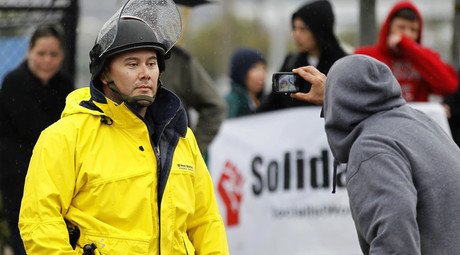New ACLU lawsuit challenges US computer hacking law

The American Civil Liberties Union has filed a lawsuit challenging the Computer Fraud and Abuse Act (CFAA), a 30-year-old law that civil liberties advocates say is a blank check for prosecutors that can inhibit legitimate research.
The ACLU filed the lawsuit Wednesday on behalf of a group of academics and journalists against US Attorney General Loretta Lynch.
The complaint says that the CFAA’s overly broad restrictions create a chilling effect on “range of speech and expressive activity protected by the First Amendment.”
The plaintiffs in the case want to investigate possible online discrimination in algorithms used by employment and housing services, but the CFAA bars them from doing things as simple as breaking a website’s terms of service, the ACLU said in a blog post.
This provision can bar researchers from using valuable tools, such as creating multiple accounts on a service or using automated data tracking of public information.
“The problem is that those are the very methods that are necessary to test for discrimination on the internet, and the academics and journalists who want to use those methods for socially valuable research should not have to risk prosecution for using them,” the blog post said. “The CFAA violates the First Amendment because it limits everyone, including academics and journalists, from gathering the publicly available information necessary to understand and speak about online discrimination.”
The plaintiffs in the lawsuit include two academics researching online discrimination, two computer science professors, and First Look Media, the company behind The Intercept. Some of the plaintiffs are trying to test whether certain websites show higher interest rate loan ads to minorities or higher paying jobs to men.
Even if the lawsuit succeeds, civil liberties advocates’ anxieties about the CFAA won’t be put to rest, as it would only invalidate a small portion of the law.
In 2013, Internet activist and Reddit co-founder Aaron Schwartz committed suicide following CFAA charges of stealing academic articles. Lawmakers introduced legislation dubbed Aaron’s Law in 2013 to restrict the law’s powers, but the bill hasn’t proceeded through Congress.














